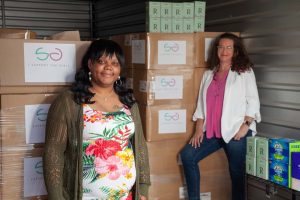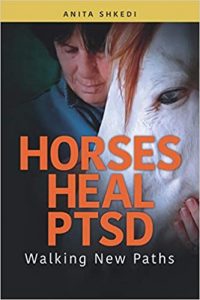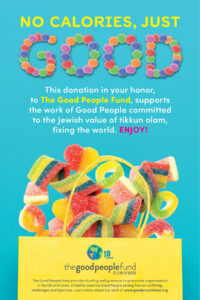“I was made to feel confident in myself and my potential.”
— Jonathan Escobar, asylee, age 23
He remembers the night he left home in Guatemala, aiming to escape frequent anti-gay threats against him and the indifference of authorities.
“It was 3 a.m. and I woke my mother and said, ‘I’m leaving.’ I didn’t cry at this moment. I didn’t want her to know how difficult it was for me. But I cried like a baby when the taxi came and I got in.”
A few days and three bus rides later, Jonathan Escobar reached the U.S. border with a duffel bag and presented himself for asylum.
For months, he lived in an immigration center until officials allowed him to make his way to New York City and the embrace of an aunt and uncle who turned their basement in Queens into a living space.
“Sometimes it was hard to smile, but I always tried,” Jonathan says now of those days in 2018. “All I knew is that I had to take all the opportunities coming to me that I could.”
It was while taking an English language class that he learned about Emma’s Torch, the Brooklyn-based restaurant-as-social-enterprise that trains refugees, asylees and survivors of human trafficking in the culinary arts — to equip them for careers and an upward trajectory. Emma’s Torch is a GPF grantee.
“I tried to learn everything,” Jonathan says of the three-month program at Emma’s Torch. “I was glowing the whole time. I wasn’t defined there by my past and my trauma. I was made to feel confident in myself and my potential and the future.”
And that is one of the main objectives of Emma’s Torch, says Kerry Brodie, its Founder and Executive Director.
“Our students have overcome what can only be described as the worst of humanity. But that’s not the defining characteristic of any of them. They are unique individuals with hopes and dreams.
“We try to be as forward-looking as possible to restore that dignity and humanity. I’m constantly inspired by the resilience of our students and by their optimism.”
As of this fall, 177 individuals have graduated from the Emma’s Torch program since it began. And that includes Jonathan, now 23, who when GPF caught up him earlier this year, was cooking at a restaurant in Brooklyn, boasting about his chicken feet and spinach soup (“it’s high in collagen”), and looking to the future.
“At Emma’s Torch, I met a lot of people like me, and I learned to love all of them. Because, I knew how much it took for them to get to that place with me.”









